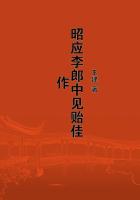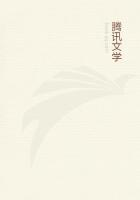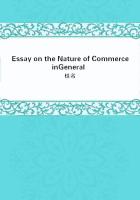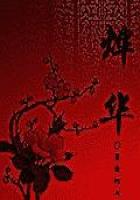The origin of a belief in GOD beyond the ken of history and of speculation--Sketch of conjectural theories--Two elements in all beliefs, whether of backward or civilised races--The Mythical and the Religious--These may be coeval, or either may be older than the other--Difficulty of study--The current anthropological theory--Stated objections to the theory--Gods and spirits--Suggestion that savage religion is borrowed from Europeans--Reply to Mr. Tylor's arguments on this head--The morality of savages.
"The question of the origin of a belief in Deity does not come within the scope of a strictly historical inquiry. No man can watch the idea of GOD in the ****** or in the beginning. We are acquainted with no race whose beginning does not lie far back in the unpenetrated past. Even on the hypothesis that the natives of Australia, for example, were discovered in a state of culture more backward than that of other known races, yet the institutions and ideas of the Australians must have required for their development an incalculable series of centuries. The notions of man about the Deity, man's religious sentiments and his mythical narratives, must be taken as we find them. There have been, and are, many theories as to the origin of the conception of a supernatural being or beings, concerned with the fortunes of mankind, and once active in the ****** of the earth and its inhabitants. There is the hypothesis of an original divine tradition, darkened by the smoke of foolish mortal fancies. There is the hypothesis of an innate and intuitive sensus numinis. There is the opinion that the notion of Deity was introduced to man by the very nature of his knowledge and perceptions, which compel him in all things to recognise a finite and an infinite. There is the hypothesis that gods were originally ghosts, the magnified shapes of ancestral spectres.
There is the doctrine that man, seeking in his early speculations for the causes of things, and conscious of his own powers as an active cause, projected his own shadow on the mists of the unknown, and peopled the void with figures of magnified non-natural men, his own parents and protectors, and the makers of many of the things in the world.
"Since the actual truth cannot be determined by observation and experiment, the question as to the first germs of the divine conception must here be left unanswered. But it is possible to disengage and examine apart the two chief elements in the earliest as in the latest ideas of Godhead. Among the lowest and most backward, as among the most advanced races, there coexist the MYTHICAL and the RELIGIOUS elements in belief. The rational factor (or what approves itself to us as the rational factor) is visible in religion; the irrational is prominent in myth. The Australian, the Bushman, the Solomon Islander, in hours of danger and necessity 'yearns after the gods,' and has present in his heart the idea of a father and friend. This is the religious element. The same man, when he comes to indulge his fancy for fiction, will degrade this spiritual friend and father to the level of the beasts, and will make him the hero of comic or repulsive adventures. This is the mythical or irrational element. Religion, in its moral aspect, always traces back to the belief in a power that is benign and works for righteousness. Myth, even in Homer or the Rig-Veda, perpetually falls back on the old stock of absurd and immoral divine adventures.
M. Knappert here, in a note to the Dutch translation, denies the lowest mythical element to the Hebrews, as their documents have reached us.
"It would be rash, in the present state of knowledge, to pronounce that the germ of the serious Homeric sense of the justice and power of the Divinity is earlier or later than the germ of the Homeric stories of gods disguised as animals, or imprisoned by mortals, or kicked out of Olympus. The rational and irrational aspects of mythology and religion may be of coeval antiquity for all that is certainly known, or either of them, in the dark backward of mortal experience, may have preceded the other. There is probably no religion nor mythology which does not offer both aspects to the student. But it is the part of advancing civilisation to adorn and purify the rational element, and to subordinate and supersede the irrational element, as far as religious conservatism, ritual and priestly dogma will permit."Such were the general remarks with which this chapter opened in the original edition of the present work. But reading, reflection and certain additions to the author's knowledge of facts, have made it seem advisable to state, more fully and forcibly than before, that, in his opinion, not only the puzzling element of myth, but the purer element of a religious belief sanctioning morality is derived by civilised people from a remote past of savagery. It is also necessary to draw attention to a singular religious phenomena, a break, or "fault," as geologists call it, in the religious strata.
While the most backward savages, in certain cases, present the conception of a Being who sanctions ethics, and while that conception recurs at a given stage of civilisation, it appears to fade, or even to disappear in some conditions of barbarism. Among some barbaric peoples, such as the Zulus, and the Red Indians of French Canada when first observed, as among some Polynesians and some tribes of Western and Central Africa little trace of a supreme being is found, except a name, and that name is even occasionally a matter of ridicule. The highest religious conception has been reached, and is generally known, yet the Being conceived of as creative is utterly neglected, while ghosts, or minor gods, are served and adored. To this religious phenomenon (if correctly observed) we must attempt to assign a cause. For this purpose it is necessary to state again what may be called the current or popular anthropological theory of the evolution of Gods.















